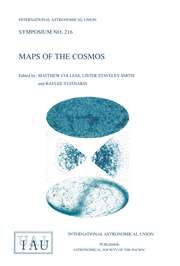Article contents
Whirl Theory of the Origin of Galaxies and Clusters of Galaxies
Published online by Cambridge University Press: 07 February 2017
Abstract
This paper reviews the present state of the theory of primaeval whirls which may be responsible for the origin of galaxies and galaxy systems. The main problems on which the author will concentrate are concerned with the pre-recombination evolution of the whirls. Special attention is given to new results, obtained by Kurskov and the author, concerning the dissipation of cosmological turbulence and the constraints which follow on the parameters of primaeval whirls. In contrast to some assertions in the literature, there is not contradiction between the whirl concept and observations. Moreover, the fact that the final spectrum of motions and corresponding inhomogeneities does not depend essentially upon the details of the initial whirl spectrum makes the theory very attractive.
The formation of galaxy systems (groups, clusters etc.) is discussed, and alternatives for the formation of galaxies themselves are briefly outlined. Many aspects of the whirl theory are suitable for further observational and theoretical development.
Information
- Type
- Part IV: The Origin of Structure in the Expanding Universe
- Information
- Symposium - International Astronomical Union , Volume 63: Confrontation of Cosmological Theories , 1974 , pp. 227 - 240
- Copyright
- Copyright © Reidel 1974
References
- 1
- Cited by

